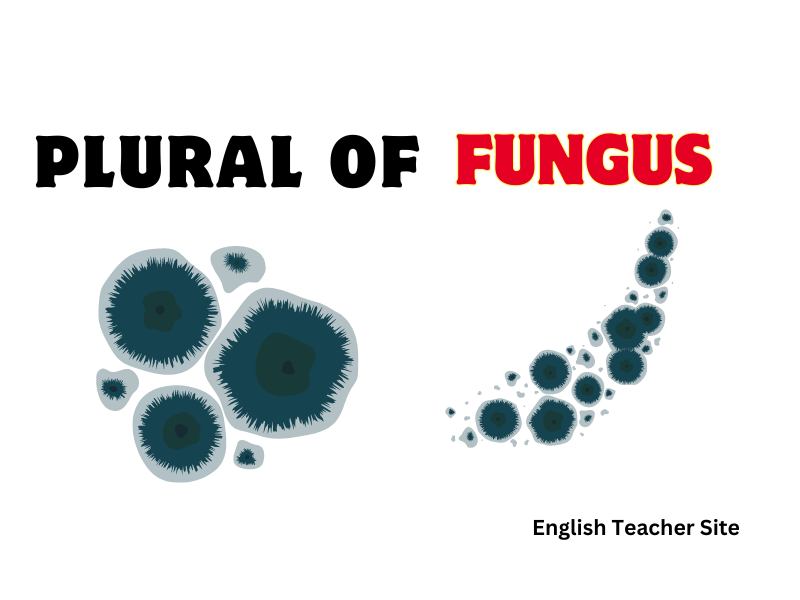What’s the Plural of Fungus: Understanding the Correct Form

- “Fungi” is the primary plural of “fungus,” following Latin rules.
- “Funguses” is a less common but acceptable plural form.
- Context and formality can influence the choice between “fungi” and “funguses.”
The principal plural form of “fungus” is “fungi,” which adheres to the classic Latin origin of the word. However, one may also encounter “funguses” as a valid yet less common alternative that follows regular English pluralization rules. The usage of either term can depend on the context or preference, but “fungi” is predominantly used in scientific and formal writing.
What’s the Plural of “Fungus”?
The plural of “fungus” can be represented as:
- Fungi: The traditional and most commonly accepted form.
- Funguses: A less common form, considered nonstandard, but understandable in modern English.
Here is a comparison of the two plural forms:
| Traditional Plural | Modern Variant |
|---|---|
| Fungi | Funguses |
In scientific and formal contexts, “fungi” is the preferred term. It aligns with the word’s Latin roots and is widely accepted in academic writings and discussions pertaining to biology. The use of “fungi” often indicates a level of precision and respect for the word’s etymological background.
The variant “funguses,” while less standard, is not incorrect. It follows the English rule of adding “-es” to words ending in “us” to form the plural. Despite its rarity, this form appears in colloquial or less formal English usage.
Understanding Fungi/Funguses
Here are two examples that illustrate the use of both plural forms:
| Singular | Plural (Traditional) | Plural (Modern English) |
|---|---|---|
| Fungus | Fungi | Funguses |
The table below summarizes the contexts in which the plural forms are commonly used:
| Plural Form | Usage Context |
|---|---|
| Fungi | Academic writing, formal speech, scientific literature |
| Funguses | Casual conversation, less formal writing |
Grammar Usage:
- “Fungi” is the preferred term in scientific writing and formal settings.
- “Funguses” can be used in informal conversation without issue.
Regular or Irregular: Fungus/Fungi as Plural Noun
Regular plurals in English are typically formed by adding “-s” or “-es” to the end of the singular noun. With this rule in mind, many English speakers might assume that the correct plural of “fungus” is “funguses”.
Here’s a quick comparison:
| Singular | Regular Plural | Traditional Plural |
|---|---|---|
| fungus | funguses | fungi |
The confusion arises because English regularly adopts and adapts words from other languages, sometimes preserving the original pluralization rules (irregular), and other times conforming to standard English rules (regular).
Usage Contexts:
- Scientific and formal: “fungi”
- Casual and modern English: “funguses”
In conclusion, “fungus” can be pluralized in two ways:
- Fungi (irregular, traditional)
- Funguses (regular, modern)
Fungus in Sentences: Examples
‘Fungi’ in Sentences:
| Singular | Plural |
|---|---|
| There is a fungus on the log. | There are multiple fungi on the logs. |
| This fungus is harmful. | These fungi are harmful. |
‘Funguses’ in Sentences:
| Singular | Plural |
|---|---|
| That fungus is edible. | Those funguses are edible. |
| A bright fungus stands out. | Bright funguses stand out in the forest. |
Examples in Context:
- When collecting mushrooms, it’s essential to identify which fungi are safe to consume.
- Researchers study how funguses work to decompose organic matter in ecosystems.
In academic writing and scientific contexts, ‘fungi’ is the preferred term. ‘Funguses’ might appear more frequently in everyday conversation. Understanding context helps determine which form to use.
Differentiating Plurals:
- The laboratory conditions were ideal for growing fungi.
- Children are often curious about the funguses they find while playing outside.
Fungi in Sentences: Examples
The following table showcases sentences using the singular form:
| Singular Form | Sentence Example |
|---|---|
| Fungus | A single fungus is growing on the bread. |
| Fungus (adjective) | The fungus-covered log was slowly decaying. |
Now, observe the plural usage in the second table:
| Plural Form | Sentence Example |
|---|---|
| Fungi | These fungi thrive in a moist environment. |
| Fungi (adjective) | Fungi-induced decay is common in damp, wooded areas. |
- In my garden, I spotted various brightly colored fungi under the bushes.
- Biologists study how fungi decompose organic matter.
- She has been researching the effects of different fungi on plant growth.
When observing fungi, one might say:
- “These fungi form a symbiotic relationship with trees.”
- “The forest floor was dotted with an assortment of fungi.”
Origin of the Word “Fungus”
The term fungus has an intriguing etymology that reflects its long history of use. It originated from the Latin word fungus, meaning “mushroom”. Over time, it was adopted into the English language, and it has been a part of the English lexicon for many centuries. The word conveys the essence of a diverse group of organisms that are critical to many ecological systems.
Latin Roots and Adoption into English:
- Latin: fungus (mushroom)
- Old English: Incorporated as fungus
Key Characteristics of Fungi:
- Lack of chlorophyll
- Filamentous structure
- Spore production
Changes Over Time:
| Century | Use |
|---|---|
| 15th | Early English usage |
| 21st | Modern scientific term |
Usage and Variations:
While the word has Latin roots, its English adoption normalized its pluralization in various forms. The most notable variations are fungi and funguses, both of which are now accepted in modern English, although fungi is conventionally preferred.
- Fungi: Latin pluralization, widely accepted
- Funguses: English pluralization, also correct
The etymology of “fungus” reveals both its classical origins and its evolution over centuries. The word’s journey from Latin to English underscores the dynamic nature of language as it relates to the classification and study of the natural world.
Sources
My name is Khamis Maiouf. I am the creator of the English Teacher Site, dedicated to providing valuable resources and insights for students around the world. With a passion for education and a commitment to helping students enhance their skills, I aim to make English teaching more effective and enjoyable for both educators and students.






